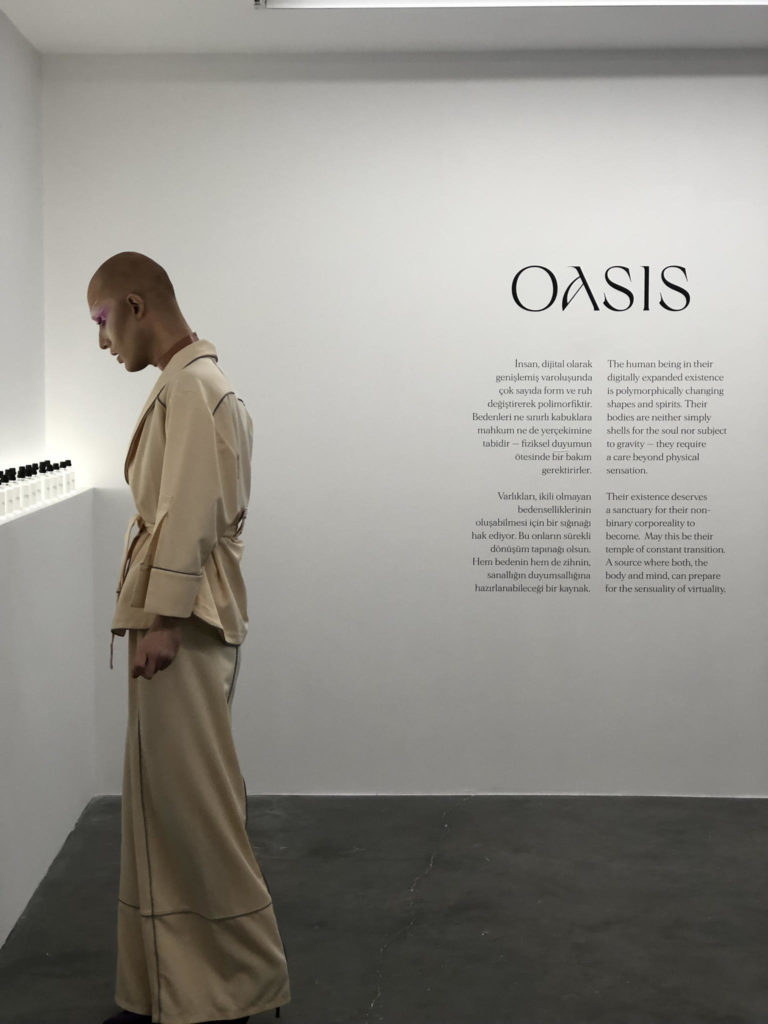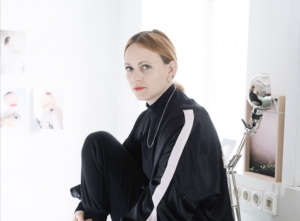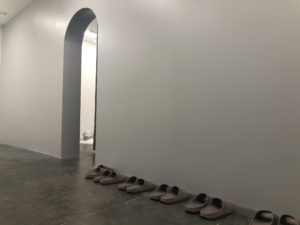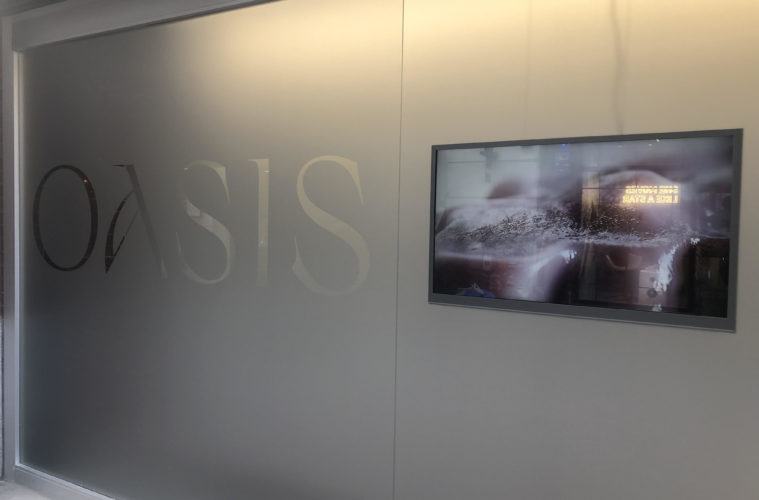The performer and queen Debonair Detsuki stood in a long beige robe, silken, like a contemporary kimono over a pair of loose, flowing pants resembling the Vietnamese áo dài. They studied a line of fictive spa products that lined the edge of a counter, bearing names like “hydra miracle integral purifying elixir”, and “extracellular matrix ceramide contact intensify booster concentrate”, and then turned, holding back a smile while pronouncing mouthfuls of conceptual spa products in Turkish and English, to the curious, incoming public.

Detsuki stood before the emblazoned, pacifying font of “Oasis”, the title of a solo show by Vienna-based Christiane Peschek, her first in Turkey. Inspired by premodern hamam culture and a perfectly exotic venture into post-Internet, body-positive virtuality, her art embraces the notion that, in the 21st century, the digital and corporal need not be separated any longer. It is a most sensual invitation, as Oasis is filled with textures and aromas, an absolutely site-specific exhibition in which everyone’s presence is as important as the works that make up the radically imaginative series of sculptural installations that transformed Sanatorium’s interior.
With a white-on-white aesthetic, reaching for external forms of purification, down to the salt that is both doused in healing baths, and left over from dead bodies, a wall text offers a comforting greeting, all-inclusive. “The human being in their digitally expanded existence is polymorphically changing shapes and spirits […] they require a care beyond physical sensation […] a sanctuary for their non-binary corporeality to become […] A source where both, the body and mind, can prepare for the sensuality of virtuality.”

Christiane Peschek
And there are singular placements of text throughout, such as to divide the opening section of the exhibition — featuring Detsuki on opening day beside pairs of rubber moccasins, to the main hall in which Peschek’s artworks are situated, flowing and bubbling with scented steam and suspended, as in a space without gravity. The wall that separates these two areas is connected by a passageway. Under its arch, there is a phrase that is only visible by the flash of a camera. It reads: “History No Longer Applies to Us”. That is an ambitious charge, all the more so when planted in a stealthy light.
The overarching idea behind Oasis, it seems, is that fluid identity, and youthful agelessness is possible in the futuristic virtual sphere that Peschek is posting through her interactive art, fit for the funhouse spectacles of a biennial. It is tempting, but ultimately, as unfulfilled as reality.
As part of the exhibition’s works, Sanatorium produced a book for Oasis with terse essays by queer feminist writer, publisher and critic Seçil Epik, performance art researcher Daniela Hahn and Melih Aydemir, an artist and curator who works at Sanatorium. In their pieces, they explore the body, its cleansing and digitization through the lenses of plural queerness.

Epik wrote about going to a hamam in Eskişehir with three other short-haired “women” (quotations theirs), and how they queered the space, transcending its traditional gender binary. Aydemir confessed to following skincare trends led by South Korean influencers in which the act of exfoliating can be understood as a metaphor for personal transformation, “the fluid virtuality where queer bodies [and (un)bodies] can flow freely under anonymity.”*
*Melih Aydemir. “Exfoliation: Finding the (un)bodies”. January, 2022.


